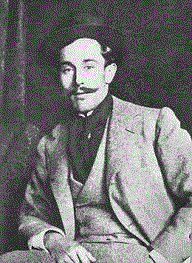sheet stamps
This site is devoted exclusively to a
50c stamp monograph at Type Peace!
1932 - 1940

Preamble
-
To my father born in 1934
-
To my mother born in 1936
-
My favorite book from 1932: "Journey to the End of the Night" which undoubtedly unconsciously inspired the title of this site
All the philatelic items presented are my property , unless otherwise stated, which concerns only the Postal Museum.
I therefore draw your attention to the copy rights . For items in the Postal Museum, authorization is obtained from the Museum and from Philaposte. About me , this site aims to provide free information. Any partial or total reproduction of this site for commercial purposes is prohibited. Any partial reproduction, for non-commercial information purposes, is authorized on the imperative condition of mentioning the reference of this site and informing me (for this you have the Contact tab)

Proof in black of the original punch without facial value
André Tardieu, President of the Council, in 1932 asked the postal administration to produce a new series of stamps in common use devoted to peace. This work is entrusted to the designer Paul-Albert Laurens. He makes an allegory of the Republic wearing the Phrygian cap which holds an olive branch on the left and his scabbarded sword on the right. This stamp reflects the strength of the pacifist current in France between the wars. For the engraving, Antonin Delzers was chosen, specializing in the production of fiduciary securities, banknotes and above all postage stamps.

Paul Albert Laurens Designer of the stamp Type Peace is a French painter born in Paris 6th January 18, 1870, and died in Toulon (Var) September 27, 1934

Jean Antonin Delzers, born August 17, 1873 in Castelsarrasin and died in 1943, is a designer, engraver of stamps and French teacher
Contextualization of the trip with the 50c to the Peace type. The latter is multiple:
Countless postage rates. The major 20th century issues: “Pont du Gard series, Airplane flying over Paris…” find their letters of nobility with a very real postal use and far from being complacent.
The inter-war period with a troubled political context (rise of nationalisms) which will lead to the Second World War exacerbates the geopolitical aspects centered on the colonial empires
Postal services for users are plethoric
The Air Mail is changing; end of Aéropostale, creation of Air France
The rise of the pneumatic network in the 1930s
The heyday of notebooks with advertisements
Famous counterfeiters and fakes
A production start of the 50c which preserves mysteries with the birth of 4 types and a sub-type...
An even more mysterious sale...
The beginning of the Second World War, in a situation of debacle and a letter rate at the first level of: 1F, will see (shortage obliges) a resurgence of the 50c Peace for the internal mail.
Log book
Why the 50c Peace type?
The preamble at the very beginning sheds some light...
Then, a neglected stamp apart from the inflationary bubble of the notebooks, a very expensive fantastic theme which in no way explains the context of an era
You will have understood that as far as I am concerned, historical contexts are of paramount importance. A monograph makes it possible to explore all the facets of a postal era... Philately joins the great history, and more particular even confidential stories.
How to start? The elements of the genesis of the stamp are the condition sine qua non to begin; that's what I looked for first. Proofs are the rarest pieces to collect... A window of opportunity opened up for me. I started!
The Musée de la Poste has been admirably associated with my approach!
A special thought for young people (I have been collecting stamps since the age of 6). Without venturing into exhaustive research, it is possible to investigate parts of postal history with a reasonable budget... So to travel at a suitable price! Revisit philately with the means of information of our time...
For informed collectors, there are very large stamps: the precursors, the classical period, Merson, Mouchon, the fabulous Semeuse, Pasteur... The 50c in the Peace type (a little despised ?) has its distinct philatelic virtues worthy of its illustrious predecessors... I modestly hope that I have provided some factual information on the first-rate philatelic interest associated with this stamp!
Document du Musée de la Poste


Le 50c Paix est au type IIA.
Il a probablement été réalisé à postériori avec le poinçon achevé conservé au Musée de la Poste (Cf Genèse).
Le document mentionne (à tort) le 18 septembre 1932 comme date d'émission (Cf Vente Postale)

Construction site. Check out the additions as they come